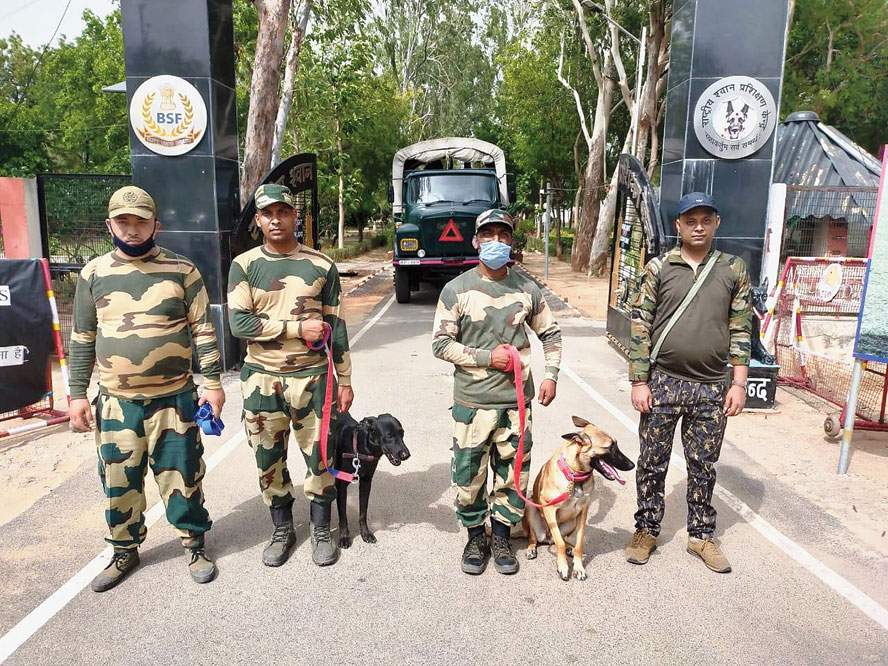Man’s best friend can also be one of the smartest protectors of forests and wildlife.
Two more trained dogs, set to arrive in Calcutta on Sunday night, will join the canine squad of the Bengal forest department in the next couple of days.
Orlando, a Labrador, and Shyana, a Belgian Shepherd, will be sent to two prominent reserve forests of Bengal to join forest guards to combat and prevent a number of wildlife crimes — from poaching to timber smuggling.
The new entrants, a senior state forester said, had been trained at the National Training Centre for Dogs (NTCD), run by the Border Security Force (BSF) at Tekanpur near Gwalior in Madhya Pradesh.
So far, there were six trained dogs with the state forest department engaged in forest areas like the Buxa Tiger Reserve and Jaldapara National Park (both in Alipurduar district), and the Mahananda Wildlife Sanctuary (Darjeeling district).
“Orlando will be sent to Gorumara National Park (located in the Dooars, Jalpaiguri district) while Shyana will go to the Sunderbans Biosphere Reserve (South 24-Parganas). They have finished their three-month training at the NTCD and will join our men in forest protection,” Ravikant Sinha, the principal chief conservator of forests (PCCF) of the state, said.
But first, Sinha said, Orlando and Shyana would reach the deer park or Harinalaya at Salt Lake in Calcutta.
“The two dogs will be medically examined in Calcutta and only then be sent to the Gorumara park and the Sunderbans,” the PCCF added.
In north Bengal, incidents of rhino poaching have been reported both in Gorumara and Jaldapara, the latter being the largest habitat of the one-horned rhinos in the state.
In 2017, poachers having links with northeast-based terrorist outfits had poached two rhinos, cut off the horns and buried the carcasses on the park premises.
“Our department had investigated the case and later it was handed over to the CID. However, it took time to locate the carcasses and nab those who were involved in the crime. If we have trained dogs here, it will help us trace such criminals and locate the carcasses faster,” said a source in the department.
While the dogs were being trained at the NTCD, the state forest department had sent samples of different animal parts to Tekanpur so that the canines could develop the ability to identify such items, the source said.
“A trained dog can also help us prevent the smuggling of animal parts. In north Bengal, animal parts, ranging from leopard and tiger skins to pangolin scales and elephant tusks, are seized on a regular basis. During the raids, trained dogs can locate these items,” the senior forest official said.
Trained dogs can also sniff out poachers or timber smugglers in the reserve forest areas.
“There have been instances in the past when trained dogs have even traced firearms used in wildlife crimes and later buried in villages on the forest fringes. We hope these two dogs will help us in many ways,” the forester added.










